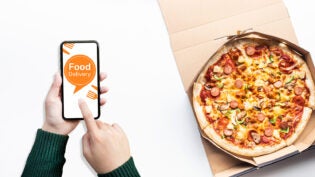
It’s no secret that this year has been a trying time for businesses big and small, but it’s estimated that 80% of small businesses expect to suffer long-term as a direct result of the pandemic. As economies around the world begin to slow down, with many already entering a recession, now could be the perfect time to safe-guard your business by introducing a reward program.
What are reward programs?
Turning one-off customers into brand loyalists is no easy feat, but reward programs help incentivize customers to stick with you. They’re a clever marketing strategy that rewards loyal customers that frequently engage with a brand.
Reward programs work by rewarding recurring consumers, predominantly through financial incentives – such as money off future purchases. In fact, 79% of people say they are motived to join loyalty programs for customers if there are financial incentives.
There are different types of reward programs you could consider for your business.
Points based programs
The points system is perhaps the most widely used in that it’s simple to understand. Focusing on the principle that the more your spend, the more points you get in return. By rewarding customers with redeemable points, you can increase your customer’s average transaction value. This constant reward based system means they are less likely to switch to a competitor for fear of losing their points.
Tier based programs
The tier system focuses on levels of loyalty, i.e. the more loyal your customers are to the brand, the greater the rewards they’ll receive.
Offering a tier based loyalty program is a great way to engage customers and keep them brand focused. With 79% of customers saying they are more loyal to a brand upon unlocking unique and bespoke benefits, the tier based program plays on aspects of gamification which drives us to spend more to open new levels – like a game.
Paid programs
Increasing in popularity is the paid program. Paid programs are like memberships, where customers feel they are receiving something exclusive, and they’re part of a community. This need for exclusivity can be the key to building an emotional response. And with research suggesting that emotionally connected customers spend twice as much as customers who are just satisfied with the brand, it might be a style of program worth considering.
Charitable programs
Another popular type of reward program is one that gives to charity. The Body Shop is a shining example of a business that has built its ethos into its loyalty program. Structuring a loyalty program around values you share with your consumers will make it more likely that they become brand loyalists. And, according to one study it was found that millennials spend 70% more on brands that support causes they care about. And a staggering 89% of shoppers would switch to a brand that is associated with a good cause, given similar price and quality.
Why your business should think about a reward program
By using reward systems you’re not only creating brand loyalty, but you’re ensuring continuous growth for your business through repeat customers, as well as new ones. Providing a trustworthy experience means your customers are more likely to recommend you to others. As a result of this, customers who have been recommended to your site spend 200% more than customers acquired through other means.
And the customers who are most likely to be loyal? Millennials. Millennials and Gen Z are the two groups who respond the most to brands who target them by user-generated content and personalized offers and communication, whereas Baby Boomers and seniors are less-likely to be brand loyal.
2226 Views












